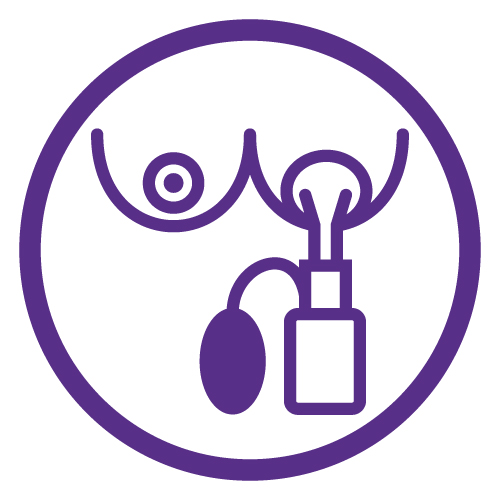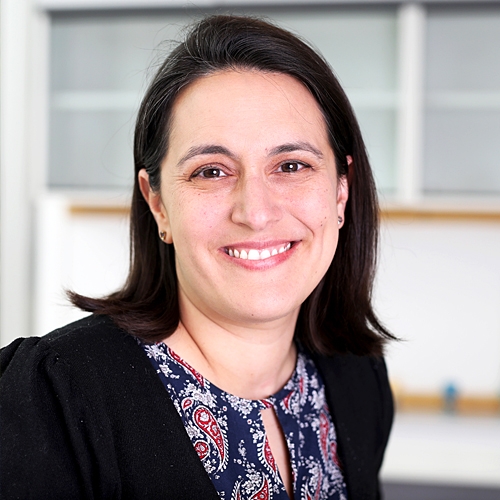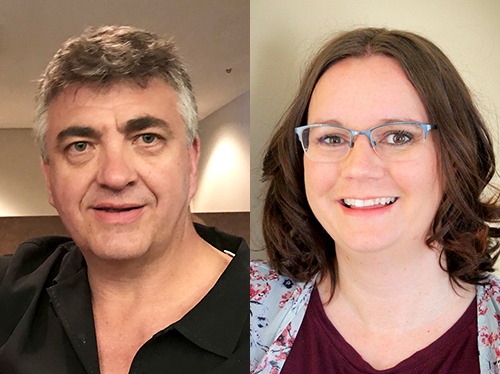 IBCLC Detailed Content Outline: Clinical Skills Focused CERPs - Section VII
IBCLC Detailed Content Outline: Clinical Skills Focused CERPs - Section VII
Access CERPs on Clinical Skills for the IBCLC Detailed Content Outline recertification requirements. Enjoy convenient on-demand viewing of the latest Clinical Skills focused IBCLC CERPs at your own pace.
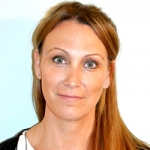
The Power of Storytelling - The Human Experience in the Neonatal Intensive Care

Jodi is registered nurse with a strong passion for preemies, developmental care in the NICU, parent teaching, and education. When not at the bedside, Jodi is hard at work offering support and lending a virtual hand to parents of NICU babies through her organization Peekaboo ICU. Jodi is the president/CEO as well as a Family Support Specialist that heads up the organization’s Journey Bead Program- offering a tangible way to track, document, and celebrate milestones in the NICU. Jodi attended college in Ontario Canada where she completed her nursing degree. After college, Jodi earned a number of certification in neonatal nursing including her RNC-NIC, Developmental Care Specialist certification, and an Advanced Certification in Neonatal nursing while attending BCIT’s Bachelor of Science in Neonatal Nursing degree program. Jodi is currently working towards her Masters of Science in Nursing-Care Coordination degree through Capella University.
Storytelling is the foundation of the human experience and can be an extraordinarily powerful tool used to connect families and healthcare providers in the neonatal intensive care. The NICU is a fast-paced, high stress environment so it’s easy to lose site of the story, but it is the story that can make a difference, not only to the families you serve, but to you as well. It is through storytelling that a compassionate, real approach to care and medicine will bring change to the NICU experience, increase patient satisfaction, and decrease burnout and compassion fatigue. In this presentation you will learn how to develop more empathetic relationships with families on the basis of a deeper understanding of their human experience. Follow Jodi as she explores the principles of storytelling, evaluates the use of narrative medicine in NICU education, and teaches ground breaking strategies to recreate a positive and profound NICU experience through the power of human connections.
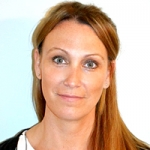
View Details / Enroll

View Details / Enroll
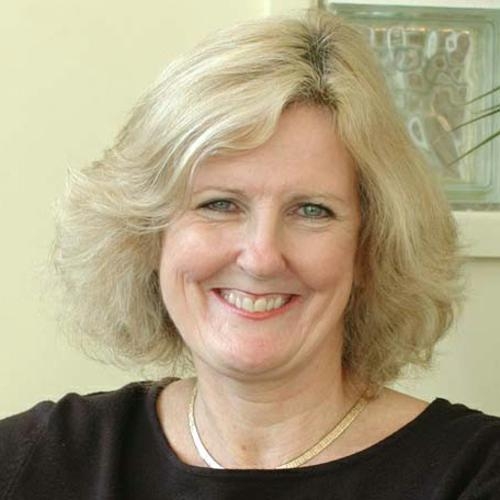
The Process of the Listening Visit – Challenges and Successes

Jane has worked in London, Swansea, Bahamas and Oman, as a Mental Health Nurse, Registered Nurse and Health Visitor. She retired from her last post as Senior Lecturer in Public and Mental Health, and now has honorary status. Jane was the first health visitor to be made the President of the United Kingdom Marcé Society and then the International Marcé Society for Perinatal Mental Health. She is currently on the Executive Board of the Marcé Society and is the Director of her training company in Perinatal Mental Health. Many of her courses have been accredited by the Continuing Professional Development Service. Jane is also working closely with the All Wales Perinatal Group and has been involved in many national and international groups.
Topic: The Process of the Listening Visit – Challenges and Successes - [View Abstract]
Employing the philosophy of the Listening Visit can be a daunting task for some practitioners as it contravenes the need for prescriptive interventions. The key to the Listening visit is empathetic responses, developed by paraphrasing, reflecting and summarising what the parent has said. The clear understanding of the difference between thoughts and feelings can help clarify the parent’s reasoning. Sound interpretation of the parent’s emotions, experiences and subsequent behaviours, can convey thoughts from a superficial to a more intense level. Maintaining this attention to detail allows the parent to remain focused, and, as a partnership, the mother and health worker can explore coping strategies, problem solving and cognitive behavioural techniques. It is important to consider the mental well being of the Practitioner and this is explored to ensure that they are also aware of their own thoughts and feelings.
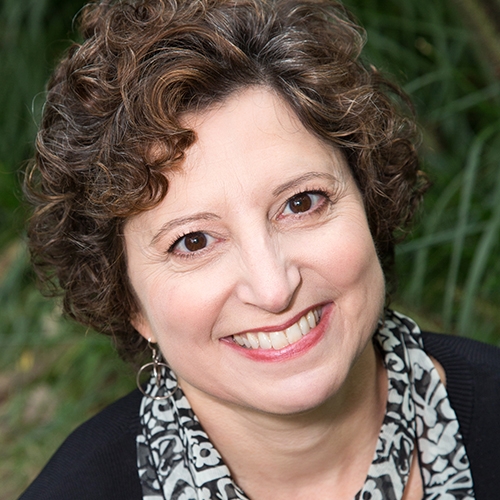

Alyssa has been helping parents and babies with breastfeeding since 2002, first as a La Leche League Leader and since 2009 as an International Board Certified Lactation Consultant.
Alyssa works in private practice serving clients worldwide, primarily through telehealth. She is the author of Breastfeeding Without Birthing: A Breastfeeding Guide for Mothers Through Adoption, Surrogacy, and Other Special Circumstances and a professional supplement to the book, The Breastfeeding Without Birthing Professional Pack online training.
Alyssa has authored articles for The Journal of Human Lactation: The Three Step Framework for Inducing Lactation and Successful Co-Lactation by a Queer Couple: A Case Study. She has also authored articles for La Leche League’s Leader Today and Breastfeeding Today magazines, and Adoptive Families magazine. She is an international speaker on the topics of inducing lactation, relactation, and other related topics. Alyssa is the proud mother of three breastfed children, two by birth and one by adoption. She lives in St. Louis, Missouri, USA.
Topic: Demystifying Inducing Lactation: How Lactation Happens Without Pregnancy and Birth - [View Abstract]
Topic: ReLATCHtation: Transitioning the Exclusively Bottle-fed Baby to Nursing - [View Abstract]
Topic: Supplementation: A Goldilocks Dilemma - [View Abstract]
Topic: The Proficient Pumper - [View Abstract]
Many breastfeeding parents rely on a breast pump to help provide milk for their babies when they are separated or not feeding directly from the breast for other reasons. Others will use a breast pump to bring in or grow their milk production. Some of these parents may find pumping uncomfortable. Many others have difficulty expressing enough milk to meet their babies’ needs. There are also those who produce an overabundance of milk while pumping. This session addresses all of these parents by providing ideas for making pumping as effective, efficient, and comfortable as possible.
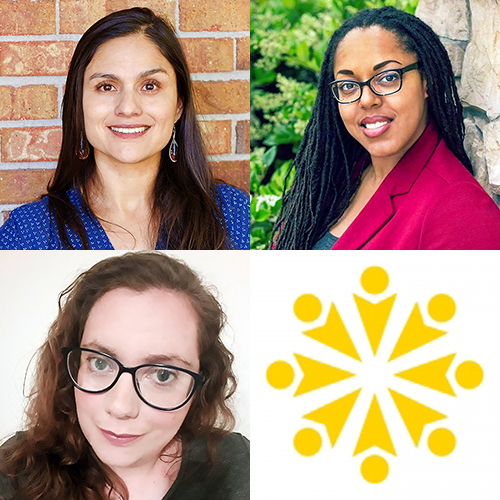

Paulina Erices is the mother of three multicultural Latino children and Project Director for Lifespan Local. Paulina earned her BS in Psychology from the Pennsylvania State University, a MS in Organizational leadership from the University of Denver and is completing her PhD in Health and Behavioral Sciences at the University of Colorado - Denver. Paulina has over 18 years of experience working with families with young children. As a Maternal Child Health specialist for Jefferson County Public Health, she developed a NICU follow-up home visitation program and the pediatric emergency preparedness plan, co-founded and coordinated the Conectando Network (former Adelante Jeffco), established community navigation and lactation support groups focused on the Latino Spanish speaking community, and lead other initiatives to support leadership and partnerships among communities and organizations. During the COVID-19 pandemic, she managed the new program Whole Community Inclusion to ensure the pandemic response and recovery implementation included health equity practices that recognize the needs and the strengths of priority populations in the county. Her areas of current work include promoting perinatal and infant mental health along the continuum of care; building community capacity to navigate health and education systems; facilitating organizational change to embrace linguistic and culturally responsive practices; and establishing community-placed participatory programs to strengthen communities. She likes to be with people, learn from and with others, and connect passions for meaningful work.
In 2014, Ghanaian-American mother and photographer, Vanessa Simmons authored the Normalize Breastfeeding™ movement to address the taboo of public breastfeeding in modern society. Her mission was to document diverse variations of normal infant feeding, across cultures and delivery methods of human milk.
Through Simmons' viral blog, her photographic speaking tour, philanthropy, and artistic inspiration; she mobilized and motivated thousands of women to share their breastfeeding photos on social media. After a very successful first year, she reached out to the Mayor of San Diego to proclaim June 27th the International Day to Normalize Breastfeeding, in support of the worldwide anniversary event!
Lactation educator and activist, Vanessa Simmons, is now speaking out at conferences and events across the country to eliminate general miseducation around the topic. On the Normalize Breastfeeding podcast, she interviews guests about experiences, advocacy, and activism within the infant feeding community worldwide.
As a public speaker, Simmons is focused on transforming the modern mindset around the natural, yet difficult task of breastfeeding. Vanessa trains lactation professionals to better understand and connect with millennial families online. She creatively motivates and inspires families to be mindful that this is a time to be cherished, and although fleeting, it is also a time to reinvent what will be acceptable for feeding generations of the future.
Simmons is an aspiring author and resides with her supportive husband and three children in San Diego, CA.
Lucy Ruddle is an IBCLC in the UK. She has a thriving private Practice on the South Coast and a busy Facebook page known for it's funny, relevant, and informative memes about breastfeeding and parenting. Lucy qualified in 2018 after 5 years of volunteering as a peer supporter and later as a breastfeeding counselor for a national breastfeeding helpline. She has written a book on relactation, called "Relactation - A guide to rebuilding your milk supply." which was published by Praeclarus Press in January 2020. Lucy's interest in relactation started after she went through the process herself for her eldest baby, and her drive to qualify as an IBCLC came from a second challenging breastfeeding journey with her younger son who was unable to latch for several months. Aside from lactation, Lucy holds a diploma in Child Psychology and worked for 15 years in early years settings, both with the children and in roles supporting parents. She prides herself on her listening focused approach to lactation support, and sees it as the key to good practice in her own work.
It’s a wonderful feeling when you’re able to support a family in getting to a place of successful breastfeeding/chestfeeding. Those moments when things suddenly click and baby starts nursing effectively and their overwhelmed parents are able to finally see an end to their struggles, are heartwarming and we celebrate those achievements for both our clients and ourselves. What doesn’t get talked about very often however, is the struggles that go alongside those triumphs. The caregiver burnout, compassion fatigue, guilt, and overwhelming feelings of failure that can derail our confidence in ourselves as care providers. This panel digs deep into the realities of working as a lactation care provider, examining both the struggles and possible solutions.

View Details / Enroll
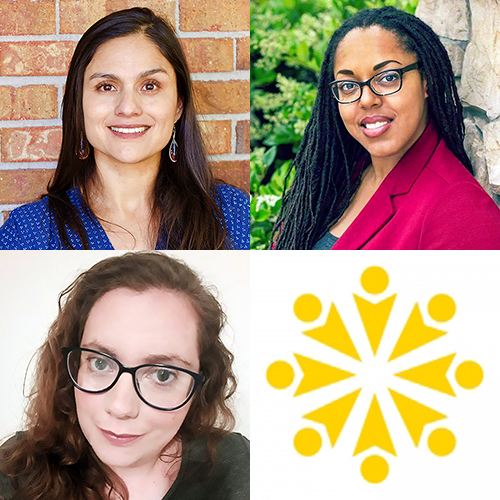
View Details / Enroll
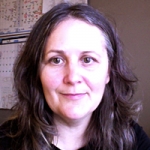

Tina Revai came to breastfeeding professionally in her practice working with families as a nurse of 25 years. However, once becoming a mother, her understanding of breastfeeding as an important factor in the feeling of success (or not) in parental role transition became experientially apparent. In order to support others towards self-defined breastfeeding success, Tina became a La Leche League Leader in 2006 and an IBCLC in 2007. She is currently co-president of the British Columbia Lactation Consultants Association and continues to work directly with families in her community of Port Alberni, on beautiful Vancouver Island, Canada.
The Relational Breastfeeding Framework is a process driven model for clinical breastfeeding supports that is consistent with the origins of the IBCLC profession. Little has been published that theorizes pragmatically about lactation support, bridging both the instrumental and relational aspects of this work. The introduction of this framework is an important contribution to theory development within the profession in that it unravels the complexity of reflective and dyad centered care, making clear the process for those who seek to practice in this way. This presentation makes the case that relational breastfeeding support is consistent with the underlying philosophy and history of the profession and should be the goal of all lactation consultants. However, equally relevant, another purpose to this presentation is to spark a generative debate about what we do and how we do it.

View Details / Enroll
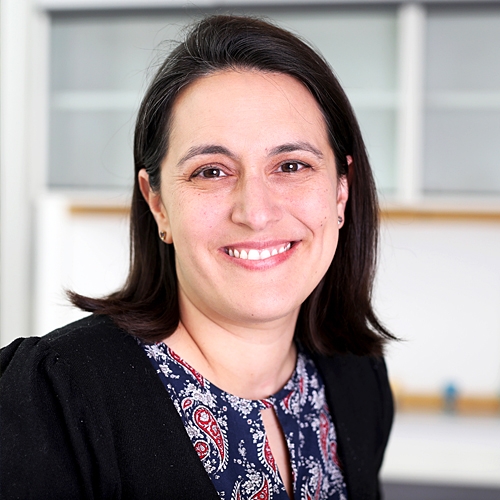

Dr Natalie Shenker is a former surgeon, scientist, and the cofounder of the Human Milk Foundation, which aims to ensure more babies are fed with human milk. As well as supporting a range of educational and research studies, the HMF aims to ensure assured access to screened donor milk through a network of human milk banks based on the cost-effective innovative model of the Hearts Milk Bank (HMB). Milk banks provide screened breastmilk to premature babies whose own mothers need time to establish breastfeeding, protecting them from a range of life-threatening complications and supporting the mother to breastfeed. The HMB has been operating in the UK for 18 months, and has supported neonatal units as well as families in the community where breastfeeding is impossible or taking time to establish.
Evolution has created human milk as a way to protect the baby postnatally, patterning the immune system and microbiome, and providing diverse developmental cues for each organ system to develop normally. Milk also provides nutrition. When screened donated human milk (DHM) is available, mothers facing the most stressful circumstances of having an ill premature baby tend to have high chances of establishing breastfeeding. If donor milk is used appropriately as a bridge to lactation, they are less likely to perceive that their bodies have failed. The work of the Hearts Milk Bank over 18 months have laid the foundation for a UK-centred drive to upscale milk bank capacity, facilitate research to determine the optimal use of donor milk, and support a shift in perception about the role of human milk, underpinned by the latest science.

View Details / Enroll
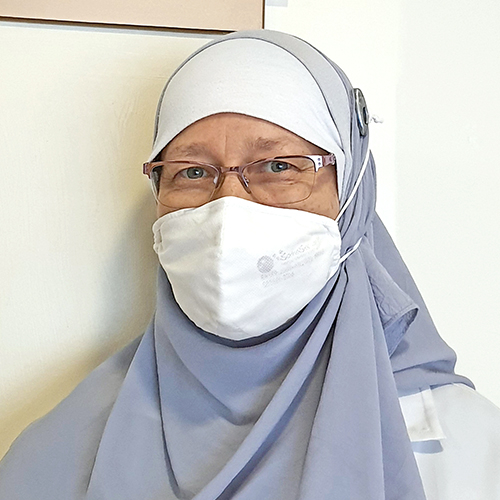
The Sharjah Baby-Friendly Campaign: A Community-Based Model for Breastfeeding Promotion, Protection and Support

Evelyne Ruf is a family physician from France, and an International Board Lactation Consultant (since 1993). More than 25 years ago, she shifted to the United Arab Emirates (UAE), working for the Ministry of Health, in Sharjah MCH Center. She opened there the first Lactation Clinic in the UAE, with the support of volunteers from Breastfeeding Friends (BFF), which she had co-founded.
Five years ago, the Lactation Clinic has been shifted to the Family Health Promotion Center, where it continues to offer, to a very cosmopolitan population, skilled lactation support as well as assessment and release of tethered oral tissues.
A member of the National Breastfeeding Committee, Evelyne has been involved in the Baby-Friendly Hospital Initiative as a lecturer, trainer, adviser and assessor. Her workplace became the first Baby-Friendly Health Center in the UAE and received the IBCLC Care Award (community category) in 2015.
She has also been actively involved in the Sharjah Baby-Friendly Emirate Campaign, a multi-sectorial initiative launched in 2012, and presented its achievements during Gold Lactation 4 years ago.
With her husband of 34 years, she is the proud and grateful mother of 5 grown-up breastfed children and the grandmother of 4 breastfed little ones.
Topic: The Sharjah Baby-Friendly Campaign: A Community-Based Model for Breastfeeding Promotion, Protection and Support - [View Abstract]
Despite the recommendations and various initiatives to promote breastfeeding, most women don’t reach the exclusive breastfeeding target in both developed and developing countries. Similar has been the case in the United Arab Emirates.
Therefore based on the decree by the ruler of the Emirate of Sharjah, UAE, a multi-sectorial, multi-directional breastfeeding campaign-the Sharjah Baby-Friendly Campaign- was launched in March 2012. It consisted of 4 initiatives namely Baby-Friendly Health Facility, Mother-Friendly Workplace, Breastfeeding-Friendly Nursery and Mother-Baby Friendly Public Place. Once an organization met the criteria for any of these initiatives it was awarded the designation or accreditation of that initiative.
The campaign initiatives worked through capacity building of healthcare workers, developed breastfeeding education content and resources, and conducted community outreach through social media.
The positive impact of the campaign on breastfeeding promotion, protection and support is evident by the tripled exclusive breastfeeding rate at 6 months over a 5 years period.

View Details / Enroll
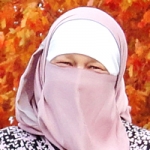
View Details / Enroll
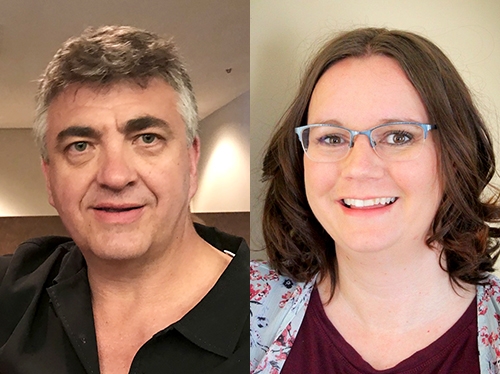
The Value of Prenatal Hand Expression of Colostrum

Naida Hawkins is a Registered Nurse and Lactation consultant in North Battleford, Saskatchewan. She is a passionate registered nurse who has cared for breastfeeding families for 14 years.
Almereau Prollius is an Obstetrician and Gynecologist in Saskatoon, SK. Together with Naida they have a special interest in strategies to promote successful breast feeding and are advocates of prenatal hand expression. They work as part of an interdisciplinary team supporting families to have an easier time starting and continuing breastfeeding.
More Milk Sooner is their program which supports and promotes hand expression in the antenatal and early postpartum period. Based out of Saskatoon and North Battleford in Saskatchewan, they hope to empower patients and care providers to increase successful breastfeeding. They are delighted to be sharing their journey with you. They are actively involved in research reviewing the outcomes of the implementation of the prenatal hand expression education strategy.
Exclusive breastfeeding for the first six months of life is currently recommended by numerous health authorities including the World Health Organization and UNICEF, and should be encouraged and supported prenatally, perinatally and postpartum. Despite these recommendations, the rate of sustained breastfeeding to six months of life remain low. Prenatal hand expression (PHE) is a method used to assist with colostrum collection beginning near term pregnancy. This technique is low-cost and easy to teach and learn. It has been shown to reduce problems with milk stasis, mastitis and breast engorgement by mobilizing colostrum and breastmilk. Learn more about how this technique can improve breastfeeding exclusivity and duration and how to implement it in your practice.

View Details / Enroll
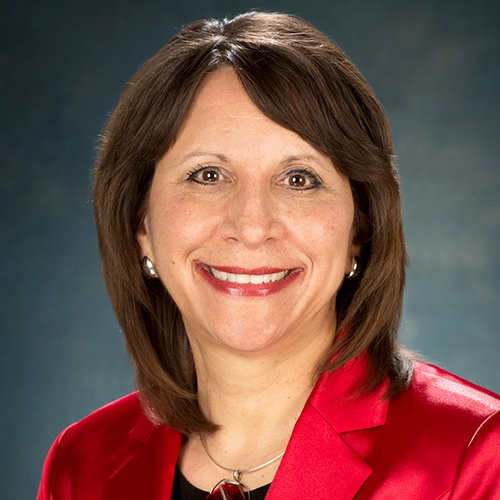
The “So What Outcome” Factor: A Key Strategy for Speeding the Translation of Evidence-Based Interventions Into Practice

Bernadette Mazurek Melnyk is Vice President for Health Promotion, University Chief Wellness Officer, Dean and Helene Fuld Health Trust Professor of Evidence-based Practice, the College of Nursing, Professor of Pediatrics and Psychiatry at the College of Medicine and Executive Director of the Helene Fuld Health Trust National Institute for Evidence-based Practice at The Ohio State University. Dr. Melnyk is recognized nationally and globally for her clinical knowledge, expertise in evidence-based practice, mental health, and intervention research as well as her innovative approaches to health and wellness. Dr. Melnyk was the first Chief Wellness Officer appointed at a University in the U.S. She founded and is the current president of the National Consortium for Building Healthy Academic Communities. Dr. Melnyk is an elected member of the National Academy of Medicine, the American Academy of Nursing, the National Academies of Practice, and the American Association of Nurse Practitioners. She is a member of the board of directors for the National Forum for Heart Disease and Stroke Prevention. Dr. Melnyk has over $33 million dollars of sponsored funding from federal agencies and foundations as a PI, is an editor of seven books, and has authored over 450 publications. As a member of the National Academy of Medicine’s Action Collaborative on Clinician Well-being and Resilience, she is working to address the national crisis of healthcare provider burnout.
This presentation will describe the state of translating research and evidence-based interventions into real world clinical settings to improve outcomes. Barriers and facilitators will be discussed. The “so what” outcome as a critical factor in speeding the translation of evidence based interventions into clinical settings will be highlighted. The presentation also will describe two successful programs of research as examples of success in scaling evidence-based interventions into practice. The Advancing Research and Clinical practice through close Collaboration (ARCC) Model will be emphasized as a successful framework for the rapid translation of evidence into practice to improve outcomes.
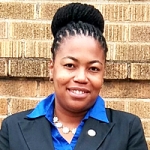
Thinking Outside the Box to Increase Breastfeeding in Communities of Colour

Mother of 6 breastfed children, Tytina is a Certified Lactation Counselor, La Leche League International Breastfeeding Peer Counselor and Program Administrator. Tytina is a Loving Support WIC Peer Counselor and Rush University Medical Center Mother’s Milk Club peer counselor. She is an International Center for Traditional Childbearing provisional Doula. She has 15 years of community-level maternal child health. Her affiliations include Chicago Region Breastfeeding Taskforce, March of Dimes, National Association of Professional and Peer Lactation Supporters of Color, Breastfeed Chicago, the United States Breastfeeding Committee, and GOLD Learning Professional Advisory Committee.
This talk is to stress the importance of breastfeeding in communities where both finances and breastfeeding rates are low. These communities tend to have the highest infant mortality rates. Breastfeeding support programs are almost nonexistent due to lack of funding. This contributes to low initiation of breastfeeding. In these communities the title lactation consultant is foreign. Breastfeeding Peer Counselors reside within these communities; however, there are no employment opportunities. These are actually environmental barriers as well. Living in a community that does not support lactation, makes infant formula appear to be the “norm” for infant feeding. If the community as a whole was aware of the importance of breastfeeding, the whole village could take a stand. Implementing free breastfeeding/mothering support groups, allowing volunteer peer counselors to come in and assist is one approach. It should not take “money” to provide free breast milk.





